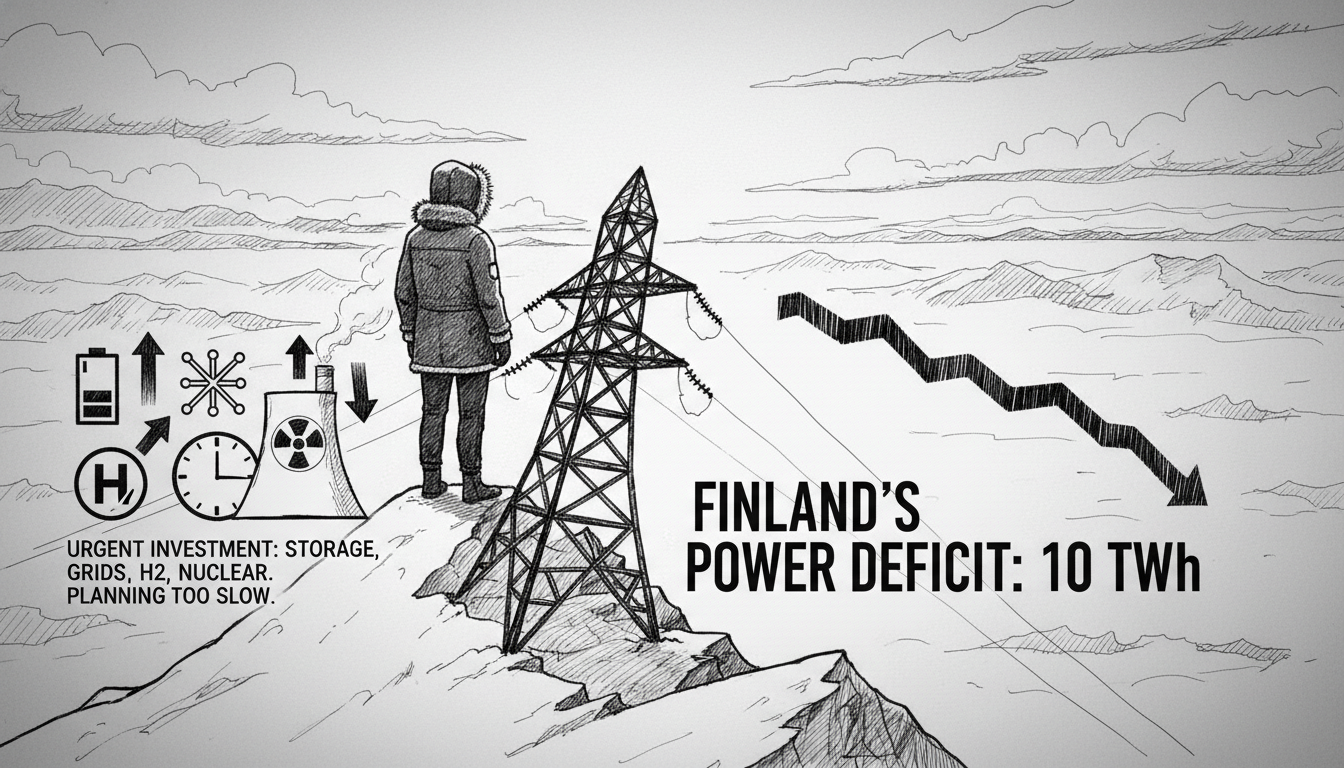A recent study reveals Finland's electricity self-sufficiency is weaker than previously believed. The research shows an annual deficit of approximately 10 terawatt-hours. This finding challenges common assumptions about Finland's energy independence.
The October study analyzed Fingrid's open hourly data and future capacity forecasts. Researchers discovered that annual balance figures mask significant hourly shortages. These gaps occur during peak demand periods and calm weather conditions.
Professor Harri Haapasalo from the University of Oulu emphasized the importance of hourly analysis. He said in a statement that annual balance calculations often hide critical short-term deficiencies. The professor noted that Finland cannot rely solely on solar and wind power solutions.
Current energy production processes face substantial delays. Planning, permitting, and implementation can take over ten years in worst-case scenarios. This timeline threatens Finland's energy security and climate goals.
The research team proposes a comprehensive investment program. Their solution includes energy storage systems, consumption flexibility, smart grid management, and hydrogen economy development. These measures would address both immediate shortages and long-term sustainability.
Professor Marko Huttula, who leads hydrogen research at the University of Oulu, stressed the need for technological diversity. He stated that all viable technologies deserve consideration for energy resilience and security. Nuclear power and alternative hydrogen production methods offer promising pathways.
Finland's energy situation reflects broader Nordic challenges. The region faces balancing renewable transition with reliable supply. Other Scandinavian countries monitor similar issues as they phase out fossil fuels.
International readers should understand Finland's unique position. The country already generates substantial clean energy but faces seasonal and hourly gaps. These challenges affect industrial operations and household energy costs.
The study provides policymakers and energy sector actors with precise hourly data. This information identifies when and where electricity shortages occur. It also suggests specific solutions for future implementation.
Energy experts note that Finland's case offers lessons for other nations pursuing renewable transitions. The research demonstrates that comprehensive planning must address both annual balances and real-time supply demands. This approach ensures true energy security rather than statistical achievements.
Professor Huttula issued a clear call to action in the research announcement. He stated that Finland needs to wake up quickly to these energy reality checks. The country must accelerate investments in diverse energy solutions to maintain its competitive edge and environmental commitments.

